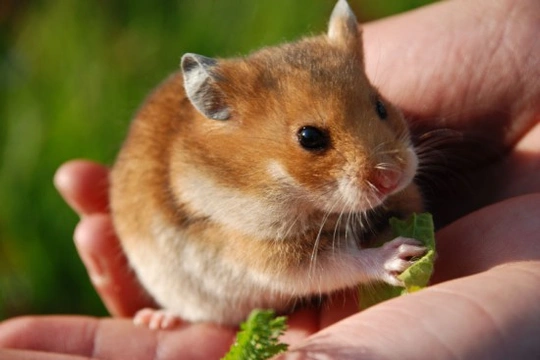
Complete Guide to Keeping Hamsters: Care, Housing, Feeding
Hamsters are charming little creatures that many have fond memories of keeping as pets, often as a child’s first experience with animal care. Popular in the UK are breeds such as the Syrian hamster and the smaller dwarf varieties including Russian, Chinese, and Roborovski hamsters. Lifespans typically range from two to three years depending on breed and care. While generally sociable, hamsters have nuanced social needs—females especially can be territorial, so it's vital to consider whether to keep them solo or in pairs kept together from a young age for harmony.
Getting Started: Essential Preparation and Housing
Choosing the right environment for your hamster is crucial to its wellbeing. A popular and versatile choice is the Rotastak modular cage system, which includes plastic components linked by tubes that mimic their natural burrowing behaviour and provide ample space for rest and play. Hamsters are nocturnal and require quiet daytime resting spaces and larger activity areas for night-time climbing, running and exploring.
Line floors with dust-free wood shavings and shredded paper bedding in nest areas, taking care to never use hay or straw as sharp pieces may cause eye or cheek injuries. Place the enclosure in a stable room temperature environment free from drafts and away from direct sunlight or heat sources such as radiators, to avoid undue stress or illness.
When acquiring multiple hamsters, purchase them as a bonded pair or group since it is difficult to integrate new arrivals later. Provide escape spots within the cage to allow individuals to avoid conflict, preparing for occasional minor spats as natural social behaviour.
Step-by-Step Hamster Feeding Guidelines
Hamsters flourish on a balanced diet consisting mostly of a high-quality commercial hamster mix rich in seeds and grains. Supplement their diet with small portions of fresh vegetables like carrots and apples, given sparingly to prevent digestive upset. Millet sprays can be a delightful enrichment treat, letting them engage their natural foraging instincts.
Provide a sturdy food bowl to minimise spillage and clean it daily, along with replenishing fresh water, ideally via a chew-proof water bottle attached securely inside the cage. Including a mineral block or stone supports healthy nutritional balance and chewing needs.
Safe Handling and Enrichment Activities
As nocturnal creatures, hamsters need their daytime rest and should only be handled when awake and settled. Allow new hamsters a few days to acclimatise to their home before gentle interaction begins. Encourage familiarity by speaking softly and offering treats, then gently coax them to climb into your cupped hands. Always handle your hamster near the ground, as they may wriggle and fall if held too high.
Children should be taught and supervised thoroughly when interacting with hamsters, respecting the animal’s delicate nature and avoiding rough or sudden movements to reduce stress and prevent bites. Enrichment includes play in tubes, climbing ladders, and exercise wheels. A hamster ball can also provide safe supervised exploration outside their cage.
Cleaning and Ongoing Care Routine
Dedicated cleaning schedules are key to healthful hamster keeping. Daily remove soiled bedding, droppings and uneaten food to prevent illness and odours; hamsters often use a specific area as their toilet, facilitating spot cleaning. Weekly full clean-outs using pet-safe disinfectants keep the environment hygienic.
Remove all bedding and replace fresh wood shavings and shredded paper bedding. Avoid draughty or cold cage locations as hamsters are susceptible to colds, encouraging attentive health monitoring to spot signs like sneezing or lethargy promptly.
Hamster Equipment Checklist
- Secure housing unit like Rotastak or a suitably sized enclosure with a locking lid
- Dust-free wood shavings and shredded paper bedding
- Complete hamster food mix
- Heavy food bowl and chew-proof water bottle with cleaning brush
- Mineral block or stone
- Vitamin and probiotic supplements to support health
- Exercise wheel sized appropriately and hamster ball for safe free exercise
- Tubes, ladders, and toys for stimulation
- Pet-safe disinfectant for cleaning
- Occasional hamster-specific treats or fresh carrot/apple sticks for enrichment
Frequently Asked Questions About Keeping Hamsters
How do I introduce a new hamster to an existing one?
Quick Answer: It's best to buy hamsters together as a pair from the start. Introducing a new hamster to an established one can cause stress and fighting.
Hamsters are territorial, so integration attempts can lead to aggression. If necessary, use a large neutral enclosure with escape areas and supervised interactions to gradually introduce them, monitoring closely for signs of distress or injury.
What bedding is safest for hamsters?
Quick Answer: Dust-free wood shavings and shredded paper are recommended; avoid hay, straw, pine, or cedar which can cause respiratory or physical harm.
Proper bedding promotes a clean, comfortable environment and prevents respiratory irritation common with aromatic woods or dusty materials. Always opt for safe, absorbent bedding specified for small furry pets.
How often should the hamster cage be cleaned?
Quick Answer: Spot clean daily, focusing on droppings and soiled bedding; perform a thorough clean weekly with pet-safe disinfectant and fresh bedding.
Regular cleaning reduces the risk of disease and improves your pet’s quality of life. Frequent spot cleaning and weekly deep cleaning are balanced to manage hygiene without causing unnecessary disturbance to your hamster.
Can hamsters live in pairs?
Quick Answer: Some hamster breeds, like dwarfs, can live in pairs or small groups if introduced correctly; Syrian hamsters should be housed alone due to territorial nature.
Social needs vary by species and individual personality. Female Chinese hamsters may be aggressive to other females. Understanding your breed’s tendency helps you provide the best environment, ensuring no overcrowding and safe spaces to retreat.
What should I feed my hamster?
Quick Answer: A high-quality commercial seed and grain mix supplemented with fresh vegetables and occasional fruits; limit treats to prevent upset stomachs.
Offer nutrition that matches natural diets, providing fibre and essential nutrients. Avoid sugary, fatty or toxic foods. Always provide fresh clean water and a mineral block to support dental health.



